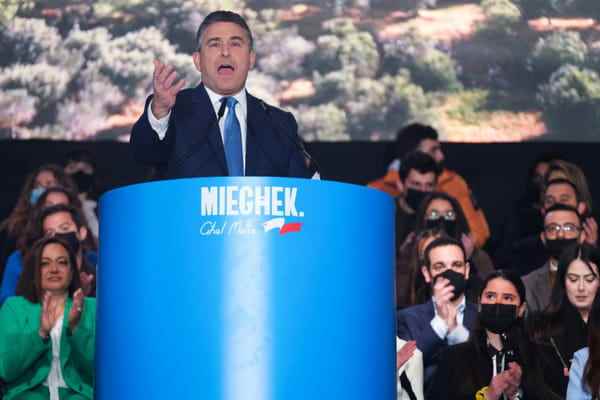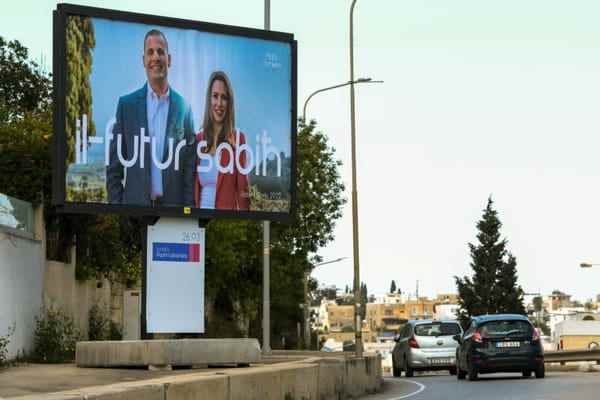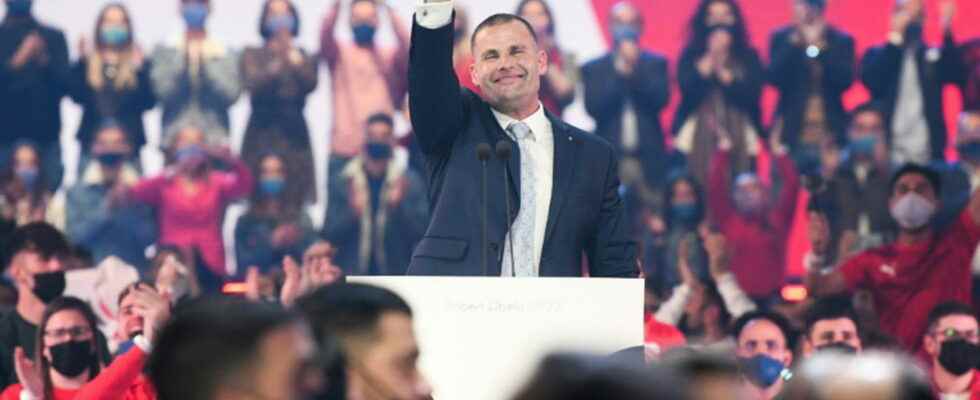The Maltese began to vote on Saturday morning for legislative elections which should lead to the reappointment of the outgoing government, on the strength of its good management of the Covid-19 pandemic and despite the specter of corruption which remains alive.
In a country still reeling from the assassination of an investigative journalist, Labor Prime Minister Robert Abela is the big favorite in this election, for which he campaigned on his management of the health crisis and the economic record. of his party after nine years in power.
But the small Mediterranean archipelago, where voter turnout usually exceeds 90%, has seen this campaign clouded by concerns over the war in Ukraine. And the image of the Labor Party remains associated with the accusations of corruption revealed by journalist Daphne Caruana Galizia, whose assassination in October 2017 shocked the country and the world.
Criticized for his attempts to influence the investigation, Joseph Muscat left his post as Prime Minister (Labour) at the beginning of 2020. His successor took measures to strengthen the rule of law and freedom of the press, which are still insufficient for the anti-corruption activists and the family of Caruana Galizia.
At a final meeting on Thursday, Mr Abela urged his supporters to “trust him” so that he “can continue to make a difference”.
The leader of the nationalist party, Bernard Grech, warned him during a rally in the capital Valletta: “Our democracy is at stake”.
– “Not proud” –
Located off Sicily, Malta is the smallest and most densely populated country in the European Union, with approximately 516,000 inhabitants for 316 km².

The leader of the nationalist party, Bernard Grech, during a campaign rally, March 24, 2022 in Valletta, Malta
© AFP – Matthew MIRABELLI
The former British colony, where Catholicism is the state religion, has built a thriving economy based primarily on tourism, offshore companies and online gambling, but faces accusations that it is a tax haven.
Malta was placed last year by the Financial Action Task Force (FATF) on a ‘grey list’ of countries under heightened scrutiny due to their exposure to money laundering and terrorist financing, and is criticized for its system of “golden passports” granting citizenship to wealthy investors who often never go there.
Under political pressure, Abela suspended the program for Russians and Belarusians after the invasion of Ukraine, but the European Parliament this month called for all such programs in the EU to be scrapped.
For many voters, economic growth remains the top concern. After a free fall in the economy caused by the health crisis, growth exceeded 9% last year, reinvigorated by government support for individuals and businesses.
“Since Labor has been in place, they have always worked for the people,” said Josephine Canilleri, 71, while drinking coffee with her friends in the town of Mosta. “There has always been corruption and there always will be.”
But others, like Joanne O’Donnell, 37, who returned from Denmark to vote, believe that “the Labor Party must leave the government”. “In the eyes of people (abroad), Malta has gone from a paradise to this place where Daphne was murdered,” she lamented at the Nationalist Party rally in Valletta. “I’m not proud of that.”
– “We are not breathing” –
Another major issue on the archipelago: the environment. Residents complain regularly about the lack of green spaces following the explosion of construction in recent years.

An election poster of Prime Minister Robert Abela and his wife Lydia Abela on a street in Msida on March 24, 2022 in Malta
© AFP – Matthew MIRABELLI
Modern skyscrapers sprout between the old stone buildings, and the roads are often congested with traffic.
“There are trucks everywhere, you can’t breathe. There is dust, concrete – no trees, no green, zero,” complains Vincent Borg, 68, while having breakfast at Musta.
Both the Labor Party and the Nationalist Party have pledged more efforts to protect green spaces. As for the environmentalist party, the ADPD, it has not managed to impose itself in the two-party system which has governed Malta for decades.
Polling stations close at 10:00 p.m. (21:00 GMT). The first results are expected Sunday noon, but the final figures will not be known until Monday.
All rights of reproduction and representation reserved. © (2022) Agence France-Presse
